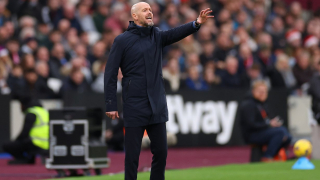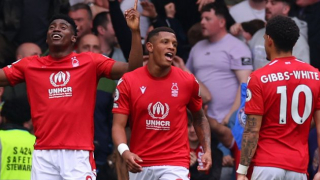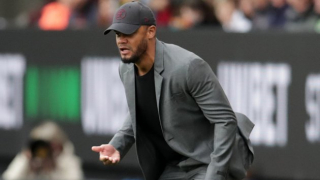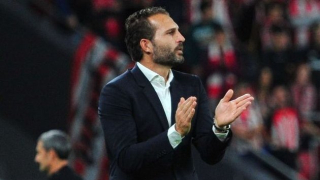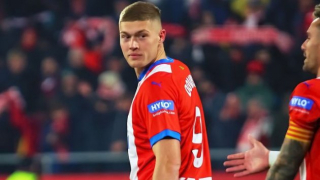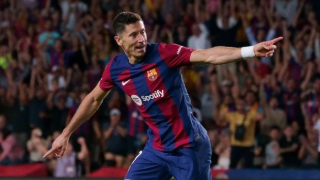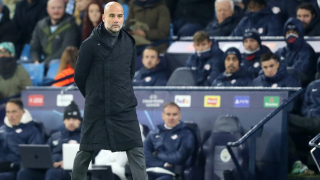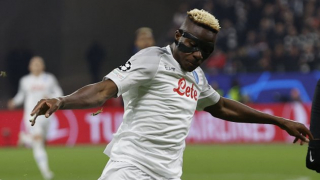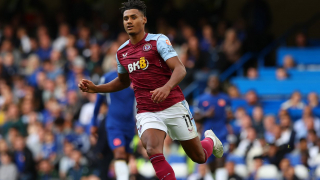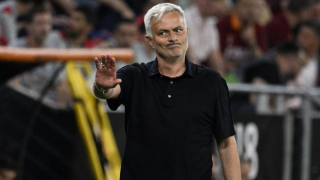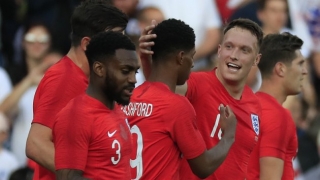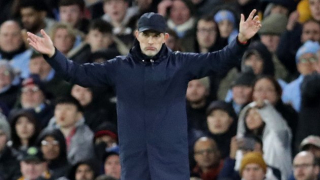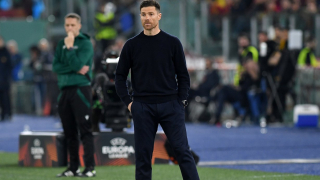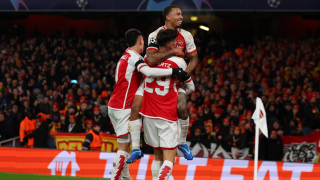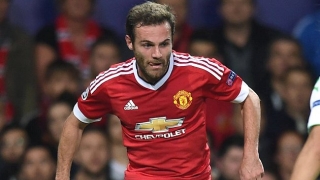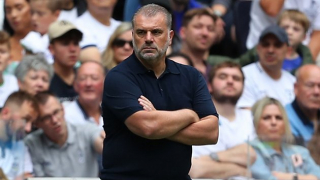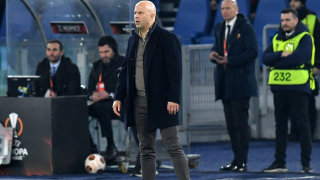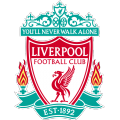It's a stormy day in Antalya and the city is hiding inside, hoping for better weather. After more than a week of heavy rain, the sun is having a tough time making its way through the dense cloud cover. And so is our car in its attempts to avoid the large puddles created on the asphalt leading to Antalyaspor's HQ just outside the city. It's an impossible day for outdoor training but Nuri Sahin (35), the former Real Madrid, Liverpool and Dortmund midfielder, is not taking a day off. He's now the manager of the Turkish top-tier club.
Sahin moved straight into coaching after he felt his best playing days were behind him. He is now in his third season as Antalyaspor's head coach. He retired in October 2021, also wearing his current team's shirt, aged just 33.
During a 45-minute sit-down with Flashscore News, Sahin didn't hold back from revealing what went wrong for him at Real Madrid and how he came to peace with Jose Mourinho's tough approach toward him years after leaving the Bernabeu.
Sahin is holding a large cup of coffee and smiling all the time, looking as relaxed as if he's in a stadium lobby with friends after a crucial victory. Inspired by the likes of Jurgen Klopp and Thomas Tuchel, the young manager is also full of praise for the tactical revolution led by Roberto De Zerbi at Brighton and wishes to have experienced Pep Guardiola's masterful mind first-hand.
Sahin went to Harvard to complete his education outside of football and to Africa to learn how to be happy again. This and much more is discussed in the interview below.
You're just 35 and it's two years since you stopped playing. Didn't management come too soon?
"Everyone is asking me this (laughs). I had a 17-year-long playing career. I started to play professionally when I was just 16. I lived every moment, good or bad, in a very intense way. Then, the offer from Antalyaspor came. I'm waking every morning and living my dream. I don't even have time to miss playing football."
Do you play anything else?
"(Laughs) In my first year, we had a very good season. And I was speaking to the president and told him: 'Look, if you want to surprise us, build us a padel court.' And now we have a padel court as a bonus for the great season we had. I learned how to play it in Spain and I love it!"
You didn't feel like taking a break from football?
"I never said to myself: 'Once I finish playing, I'm going to the beach for one year. Or to New York'. In 2015, I had a very bad injury, I was out for a year. The doctor told me there was a possibility I might not play again.
"I started to think about what was next, I became interested in what I could do after football. I went to university, I went to Harvard and I tried to observe what was happening around me. I started taking notes."
So you educated yourself outside of football as well...
"I wanted to, yes. I travelled to Africa to meet people, to see how they were living there. I wanted to appreciate my life more. I was not happy. I have two extraordinary kids, my family helped me a lot. I had to keep going to offer them a role model as well. I spoke to coaches, to players, to understand more and more."
You have a few quotes from famous managers here, on the walls of your office. What do they mean to you?
"One of them says: 'Never forget that you are working with people and not just football players.' I chose to frame these and hang them on the wall. Sometimes, one tends to forget the human side of things and it's very important not to.
"I am not just a coach, I am a man who works as one. You should always keep that in mind and address the players' human side, they're much more than their football."
Is Jurgen Klopp the most important figure for you in terms of coaching?
"I had great coaches, to be honest. I think I worked with some of the best in the world. I wish I also worked with Guardiola, but it never happened.
"I worked under Jose Mourinho, Guus Hiddink, Fatih Terim, and Thomas Tuchel. But my longest period was with Klopp. He and Bert van Marwijk are very, very special to me. Bert promoted me to the Dortmund first team when I was just 16."
How did Klopp make you feel?
"He created an environment where everyone felt appreciated. He wants everyone to feel responsible, appreciated and needed.
"If I come to my office in the morning and I don't say 'hello, thank you!' to the lady cleaning my office and if I don't talk to her a bit, I don't think it makes any sense for me to win at the weekend when the team plays.
"The balance between being a football professional and being a real person is very hard to achieve. I must never forget the human side of things."
Who are you as a coach? More Klopp than anyone else?
"I try to be myself. I'm new to this job. I have been in it for only a few dozen months, but it feels like tens of years (laughs). I want to create my own ideas about football, but I rely on what I learned from the coaches I had.
"I try to combine things, but always stay faithful to the idea of being myself. I'm talking to you now, but I don't know what happens inside your brain. You can't get into mine either. It's the same with coaching. I certainly like a style of football, but it's my own game I like to play.
"I also played under Thomas Tuchel at Dortmund. I am not into copying, I have my own ideas. But I like Tuchel's style too, I think a mix with Klopp is the best cocktail for me."
What would Nuri Sahin the coach tell the player and what would the player tell the coach?
"That's a tough one! (Laughs.)
"So, the coach would tell that player that he's quite OK in positional play: 'You're doing fine' (smiles). I was always a player who wanted to control the game, to have the ball and set the game's tempo. Sometimes, I wish I had a player like myself in the team, but I have great guys on the pitch nonetheless.
"As for the second part of the question... I always wished I had a coach like I'm trying to be. I make my mistakes, of course, and some are not happy with me, but I'm trying my best."
Do you ever refer to the player Nuri Sahin when you coach?
"That's the biggest mistake that we do as coaches. I was not the fastest player, but now I have very fast boys in my team, for example. I can't compare myself to others. If I want to be a coach, then Nuri Sahin the player doesn't need to exist in my head.
"I once had a chat with Patrick Vieira, he was a world-class midfielder and he won everything as a player. He told me: 'Forget the player.' The player is done. Nuri the player doesn't exist anymore. If I keep that in mind, I have a chance of becoming a better coach."
How do you learn?
"I am just a baby in coaching, I've barely learned how to walk. And when you learn how to talk, it's good to have people around you that already walk.
"Every single thing I learn I try to implement. I don't copy, but some of those I'm in contact with have lived it all. I speak to so many coaches and I also learn from my assistants so much.
"I went to watch Luciano Spalletti when he was at Napoli, we had a very nice talk about how he sees football. I watched one training session and it was so impressive. It lasted for 30 minutes, but he was so present in everything, he was dictating everything.
"He was the boss, you could smell he was the boss."
Are you still in touch with Jose Mourinho?
"Yes, we talk. I was interested in a player from Roma and we had a quick chat."
Did you have a complicated relationship at Real Madrid?
"In Madrid, I lived the toughest year in my career. I was injured, I didn't play that much. I had superstars around me and a superstar coach as well. His style was completely different to Jurgen Klopp's. Coming from Jurgen and going to Jose... They are completely different. I struggled.
"But the day I left I had a chat with Mourinho and what I love about this guy is that he's f***ing honest. He was hitting you in the face: boom! If you're good, you're good. If you're bad, you're bad. I was young, I was struggling.
"I asked myself: 'What is he doing? Why is he like this?' But he was honest. When I sit here as a coach and think back on my time with Jose, I can't say anything negative."
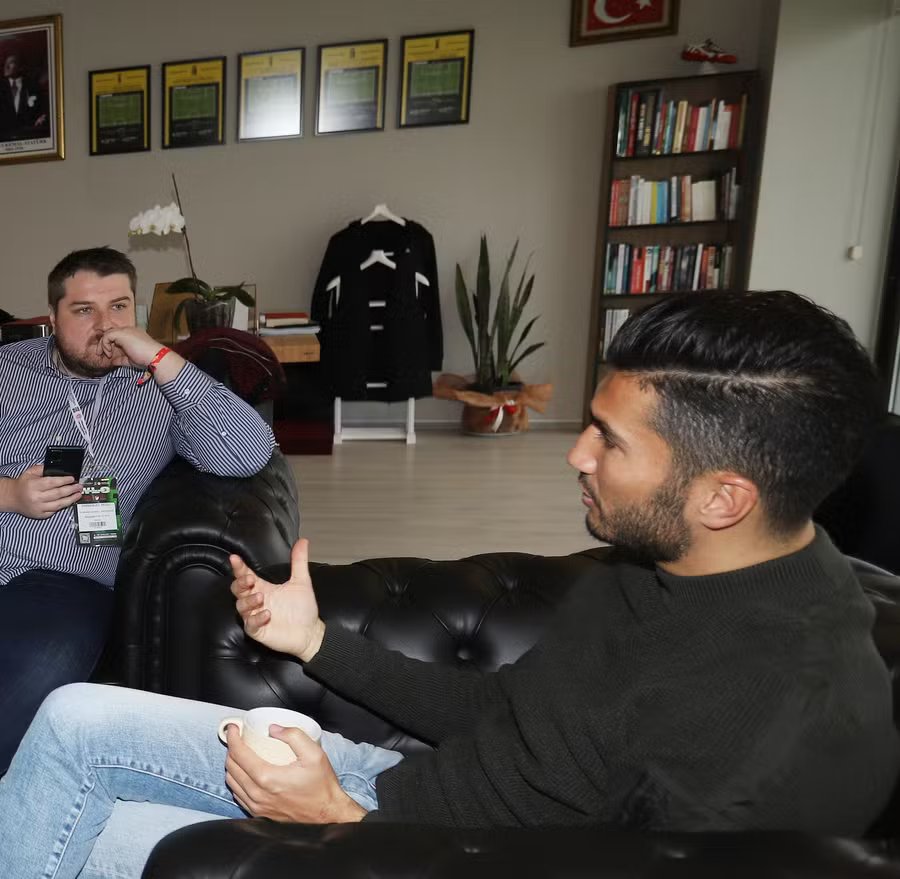
Do you feel he changed over the years?
"I watched the documentary from his year at Tottenham and I don't think so. I learned a lot of things from Mourinho. He's a winner. He would do anything to win."
Was Madrid too much, too soon for you as a player?
"It was always my dream as a child to play for Real Madrid. In terms of playing, I could have played for Real Madrid, no doubt. I was good back then. But in Madrid, it's not good enough to be a good player. You need to be mentally strong. The Real Madrid train never stops. And maybe back then, with all the injuries, I wasn't mentally that ready. You know what I mean?
"I struggled with injuries. And after the injuries, I had to deal with not playing. I was impatient. When I look back, I think I could have been a little more patient and I should have appreciated more that I was a Real Madrid player.
"People usually say: 'You're at Real Madrid, you must be happy!' I was like: 'I want to play! I want to play! I want to play.' Maybe in this mental aspect, I wasn't ready for Real Madrid."
Jude Bellingham followed a similar path and moved to Real Madrid from Dortmund at a very young age!
"This guy is mentally so ready! He's ready! (Laughs.) I spoke to many friends in Dortmund and they told me he was so mature. It was like having a 25-year-old in the dressing room, not a teenager. I was never ever as ready as he is!"
How does Dortmund get so much talent to deliver so fast?
"Every club can sign young players. But the thing with Dortmund is that they play them. Signing players is easy. It's about the transfer fee and convincing players with a good salary. Also, you can lie to them saying that they'll play.
"But when you are Dortmund, you can say: 'Look, Nuri Sahin, Gotze, Lewandowski, then, later on, Pulisic, Bellingham, Sancho, Dembele.' These guys at Dortmund - they play the youngsters. That's a big thing. There are not many clubs on the big stage that do this.
"I'd also like to sign young players at Antalyaspor, but we don't have the big stage. Our league is not watched, we are not competing in Europe, nor playing in the Champions League.
"Dortmund is there every year and they have 80,000 supporters at all their games. The player feels like: 'Wow, it's so nice to be here!'"
What's the story you're trying to build at Antalyaspor?
"We are a small fish in a big ocean. We are an ambitious club, but we're not the big fish. Not even the big fish in Turkey. We want to make small steps, baby steps. I have a board who's backing me, they gave me the chance to be here.
"We broke a few records in my first season, now we want to keep some balance in the squad. The city, the club - they fly when you win and they are down when you lose. We need to balance that and we need to create a culture. This is my biggest mission here, in Antalya. We make small steps."
Do you have time?
"We are trying to build a foundation for our 'house'. Then, we'll be able to focus on the next step. You can't build without a foundation. It takes time and I have this time. When I signed, I penned a 5-year contract. Antalyaspor is the best place where I can be at this point. I want to be here. I hope we can achieve what we wish.
"In football, of course, you never know. The day I became a coach I called Jurgen Klopp and he told me: 'Just so you know: one day you'll be fired.' I replied to him: 'You say this but it has never happened to you' (smiles)."
You moved from playing straight into coaching. Was it always going to be like this for you or did you imagine a different path?
"I never wanted to go to the beach for a year or to move to New York for a few months after my playing career was over. I am doing what I love to do."
How much of a data geek are you?
"Data is very important. I'm working with a company in Germany, we analyze every opponent and every potential signing. Also, in football, the eye is very important. You can have the best data available, but it's mandatory that you chat with the players and that you feel them.
"There are so many talented players everywhere, I have so, so many contacts from all around the world. When you go after someone, you must know where they come from, you need to know their cultural background."
Can you give us an example?
"We signed Shoya Nakajima, the former Porto player. I spoke to this guy before, but he never actually talked, you know? He was very polite, very humble, very nice but that's it. We hung up after our chat on FaceTime. One might have doubts about his ability to adapt and go for another player.
"I played with Kagawa. How was he? When he came to Dortmund, he never spoke. Then, he learned, he took steps with us. So, you have to understand the culture as well. That's so important to me.
"Had I looked just at the data, I would have said that Nakajima is a good player and that's it. We finally decided to sign him."
Have you ever turned down players after these face-to-face talks?
"I had a chat with one world-class player we could have signed. If you say his name, an instant reaction would be: 'Bring me this guy.' We spoke for three minutes. After three minutes, I told him: 'Take care! All the best, I wish you the best in your career.'
"If I told my president about this, he'd probably ask: 'Are you crazy?' But the short talk we had was enough to convince me it's not a right match between him and our club."
Is it always a call before making a decision or do you like meeting players in person?
"If a player is in Japan, I might want to go to Japan and sit in front of him as we are sitting now. A phone call is not the same, not even journalists like it when they have to interview people by phone, right? (Smiles.)
"When you meet people in person, you see how they behave, how they say things, how they greet you. Again, it's so, so important not to lose your human side as a coach. It's really hard, but you must never abandon that thought."
What player would you like to coach?
"Ah, tough one. Let's say Frenkie de Jong. I love this guy. He's brilliant to watch and I like him a lot. Another one would be Alexis Mac Allister. He's playing with his brain a lot.
"Of course, (Erling) Haaland, (Kylian) Mbappe... But that would mean I must get to their level, not them coming to me (laughs)."
Are you watching any team or coach in particular to get inspired?
"I had a talk with De Zerbi, he's an amazing coach. I watch his games and my team analyzes Brighton every week. We take a few minutes and we watch everything they do. I want to learn as much as possible.
"I like Manchester City, I like Brighton. I used to follow Gasperini at Atalanta as well, also Conte at Inter. I liked Nagelsmann at Hoffenheim and Leipzig, I wanted to see how he found ways to win matches."
Are you a fan of VAR?
"I like it but I think it should be more like tennis, where you can challenge decisions. VAR helps football but matches stop for too long, too often. I don't like the wait. Again, VAR helps football. But it cuts off some of the emotions. And that's why we love football, right? It brings out different emotions.
"The birth of a child, the love for your partner - that's something else. But football has its own set of emotions that only football can generate. The emotions need to stay there, let's keep the nature of football."
- Images courtesy of Emanuel Rosu and Profimedia

